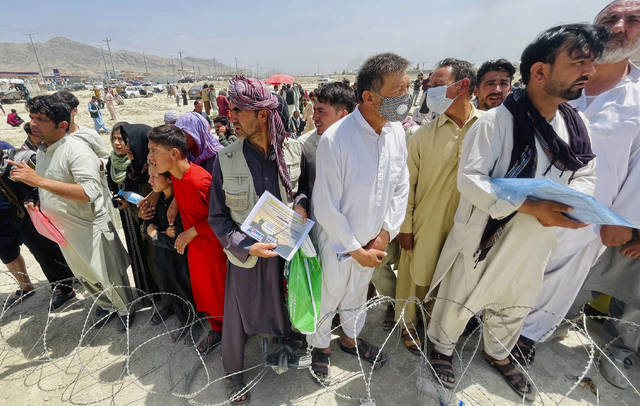The scenes from Kabul’s international airport are disconcerting enough without actually knowing any one of the thousands desperately trying to get out of Afghanistan.
But Pittsburgh resident Noorulhaq Fazly has left behind friends and relatives there and he’s been worried about them, especially after the Taliban regained control of the country last week.
“It’s very sad and disappointing,” Fazly said. “I have friends and family, and I’ve been trying to help them get out but I haven’t been successful. I’m worried. They have their visas, they have their documentation, but the entrance to the airport is blocked.”
In Afghanistan, Fazly was a legal and political assistant. He worked at the U.S. Consulate in Herat until it was bombed.
He was then evacuated to the U.S. embassy in Kabul. He worked there for two years before the threats he was receiving from the Taliban led him to decide it was no longer safe for he and his family to continue to live in his native country.
“I had already filed my application for the SIV (U.S. Special Immigrant Visa Program) because I knew it was dangerous and that sooner or later something would happen,” Fazly said.
He fled to the United States with his wife and two children and settled in the Pittsburgh area.
Pittsburgh was chosen by the State Department as one of 25 U.S. cities available for resettlement through the SIV program. SIVs are available to translators and others who worked for or on behalf of the U.S. military or government for more than two years. Local groups like Jewish Family and Community Services are aiding in the effort to bring refugees like Fazly to the area.
These days, however, much of Fazly’s heart and mind are focused on his homeland.
“This is completely unpredictable,” Fazly said. “And I just hope nothing happens, that the current regime deals with the people and tries to govern them in the right way — the way that people want and not repeat their practices from the ‘90s. Everyone hopes that they have changed.”
Since regaining control of the country, the Taliban has promised an “Inclusive government” without prejudice against women. But many are skeptical, including Fazly, who was a student the last time the Taliban ruled Afghanistan.
“It’s very hard to trust them. They have to show proof that they are changed,” he said. “The only thing I can do is be positive and hope they have changed. If they have not changed, if they are the same people who have violated human rights, women’s rights, children rights … they need to let people have their freedom.”








